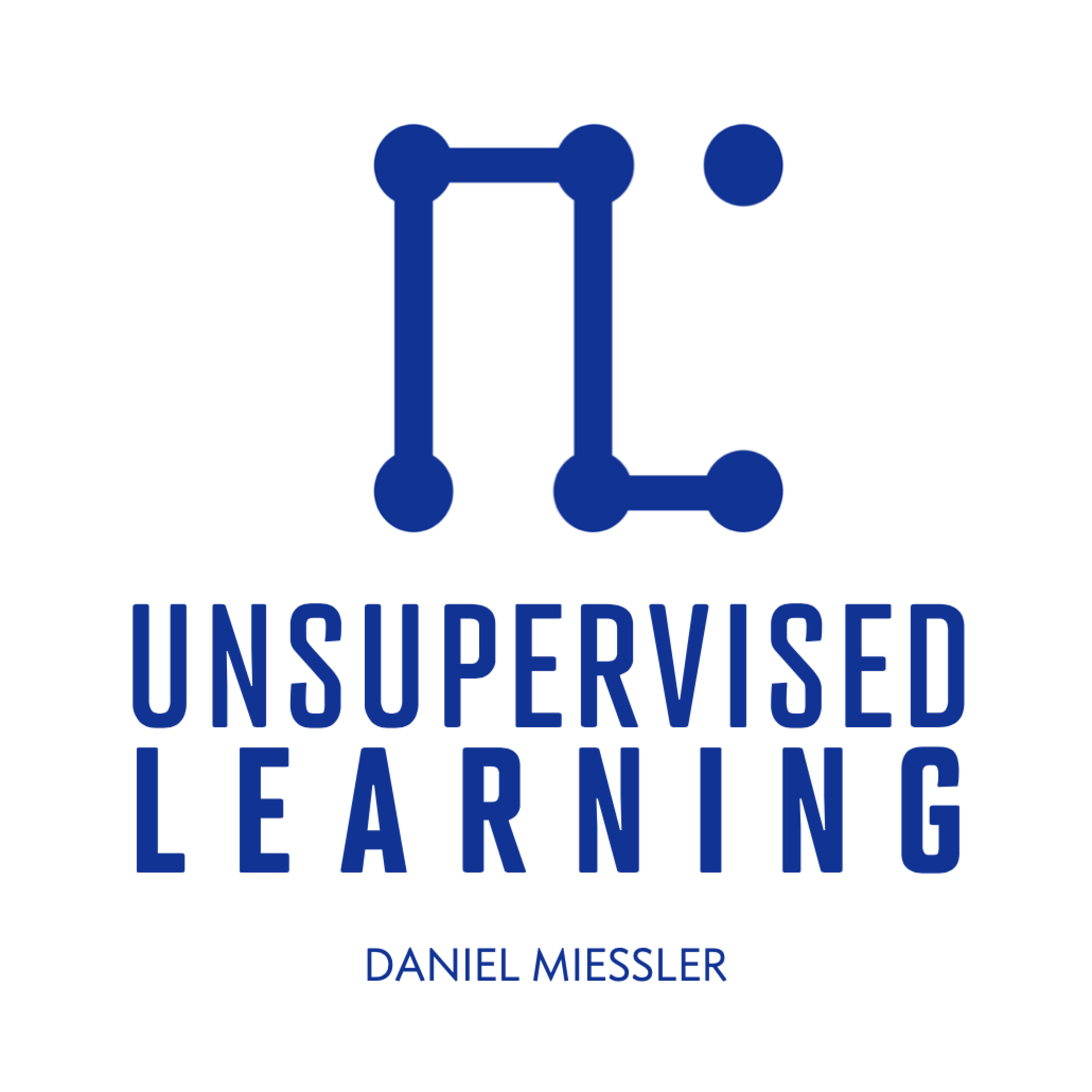

Unsupervised Learning
Daniel Miessler
Unsupervised Learning is about ideas and trends in Cybersecurity, National Security, AI, Technology, and Culture—and how best to upgrade ourselves to be ready for what's coming.
Episodes
Mentioned books

May 12, 2020 • 17min
Unsupervised Learning: No. 228
Thunderbolt Attack, Celebrity Ransomware, ClearView Government, Blackhat DEFCON Virtual, War Thunder, 5G Bio Attacks, PC Game Cheating, Zoom Keybase, Technology News, Human News, Ideas Trends & Analysis, Discovery, Recommendations, and the Weekly Aphorism…Become a Member: https://danielmiessler.com/upgradeSee omnystudio.com/listener for privacy information.

May 4, 2020 • 20min
Unsupervised Learning: No. 227
VICE vs. Chinese Surveillance, Indian Contact Tracing, NHS + GCHQ, Banjo Racism, Singapore Requires Check-ins, Bruce on Contact Tracing, Technology News, Human News, Ideas Trends & Analysis, Discovery, Recommendations, and the Weekly Aphorism…Become a Member: https://danielmiessler.com/upgradeSee omnystudio.com/listener for privacy information.

Apr 28, 2020 • 21min
Unsupervised Learning: No. 226
Bay Area Lockdown Til May, The Swedish Approach, California Autopsies, Zoom Security Updates, Palantir Contacts, NSA Web Vulns, GreyNoise Services, Technology News, Human News, Ideas Trends & Analysis, Discovery, Recommendations, and the Weekly Aphorism…Become a Member: https://danielmiessler.com/upgradeSee omnystudio.com/listener for privacy information.

Apr 22, 2020 • 1h 6min
A Conversation with Renée DiResta: Disinformation and Conspiracy Propagation
In this episode, Daniel speaks with Renée DiResta about her work tracking narratives online. They discuss: The different strains of false information Her work at the Stanford Internet Observatory How the same narrative can be used by multiple sides The origin of the Bill Gates conspiracies Mapping campaigns to actor strategies What she recommends others do who are interested in her field Other topics around disinformation, conspiracy, and narrative tracking Renée DiResta is the technical research manager at Stanford Internet Observatory, a cross-disciplinary program of research, teaching and policy engagement for the study of abuse in current information technologies. Renee investigates the spread of malicious narratives across social networks, and assists policymakers in devising responses to the problem. Become a Member: https://danielmiessler.com/upgradeSee omnystudio.com/listener for privacy information.

Apr 21, 2020 • 15min
Unsupervised Learning: No. 225
Flu Simulations, Amazon Thermal Cameras, Facebook Bad Info Tracing, 5G Gates Conspiracies, Google Slows Hiring, Amazon Hires More, Technology News, Human News, Ideas Trends & Analysis, Discovery, Recommendations, and the Weekly Aphorism…Become a Member: https://danielmiessler.com/upgradeSee omnystudio.com/listener for privacy information.

Apr 14, 2020 • 20min
Unsupervised Learning: No. 224
Biogen Superspreaders, African Locusts, Game of Life, Meat Troubles, 5G Conspiracies, Japan Getting Out of China, Technology News, Human News, Ideas Trends & Analysis, Discovery, Recommendations, and the Weekly Aphorism…Become a Member: https://danielmiessler.com/upgradeSee omnystudio.com/listener for privacy information.

Apr 7, 2020 • 16min
Unsupervised Learning: No. 223
Coronavirus unemployment rate, 2 million guns, UK 5G attacks, German Antibodies, Zoom Drama, New Cloudflare Servers, Technology News, Human News, Ideas Trends & Analysis, Discovery, Recommendations, and the Weekly Aphorism…Become a Member: https://danielmiessler.com/upgradeSee omnystudio.com/listener for privacy information.

Apr 2, 2020 • 55min
A Conversation With Leif Dreizler About Security Engineering at Segment
So today I’m talking to Leif Dreizler. Leif is a buddy of mine who also works in San Francisco. He’s a developer at a company called Segment, and over the last year or so he’s been telling me about all kinds of cool stuff he’s been working on, how his team is set up, and how they see security teams being built in the future. So we’re going to cover those topics and more in a conversation that ranges from security engineering strategy to solving specific problems through custom tooling.Become a Member: https://danielmiessler.com/upgradeSee omnystudio.com/listener for privacy information.

Mar 30, 2020 • 34min
Unsupervised Learning: No. 222
Who's hiring, freezing, and laying off, models predict 100-200K US deaths, April distancing, Adversarial Capital, Booz Russia, Google State Phishes, Worker Monitoring, Technology News, Human News, Ideas Trends & Analysis, Discovery, Recommendations, and the Weekly Aphorism… Become a Member: https://danielmiessler.com/upgradeSee omnystudio.com/listener for privacy information.

Mar 24, 2020 • 26min
Unsupervised Learning: No. 221
Health-justified Video Surveillance, FDA Emergency Approval of a C19 Test, Israel Mobile Monitoring, Amazon Essentials, Pandemic Drone Monitoring, Retasking Factories, Rich People Ventilators, Technology News, Human News, Ideas Trends & Analysis, Discovery, Recommendations, and the Weekly Aphorism…Become a Member: https://danielmiessler.com/upgradeSee omnystudio.com/listener for privacy information.


